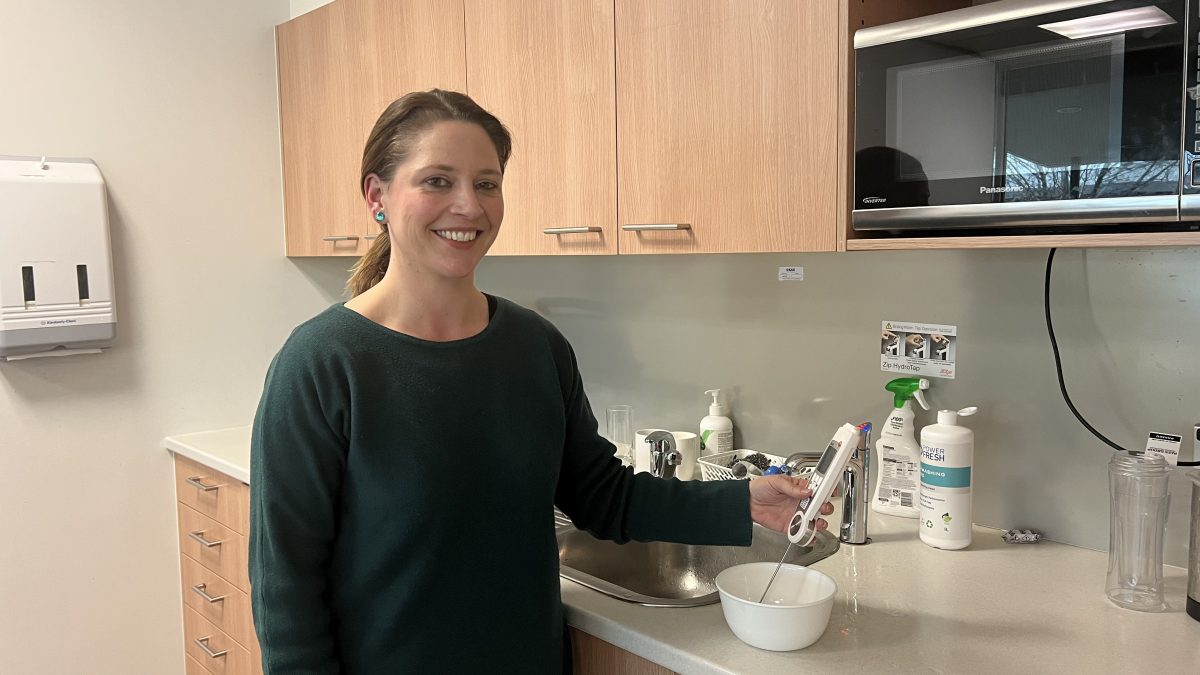
Director of the Food Safety Health Protection Service Lyndell Hudson is no stranger to seeing rats scurrying past as she conducts an inspection. Photo: Lottie Twyford.
They don’t work in the dead of night or use secret code names, but the ACT’s team of dedicated food inspectors have an essential mission to keep Canberra’s restaurants – and Canberra’s diners – safe.
And while food safety might not be the most glamorous of topics, when things go wrong, it tends to become a hot topic.
In the last financial year, nine prohibition notices and 98 improvement notices were issued to the Territory’s restaurants.
Food safety inspectors undertook more than 1100 inspections. Of these, 959 were routine and 185 were on the back of complaints. A total of 460 complaints were received.
Those complaints range from anything related to food poisoning to dirt, to cockroaches, to noticing a chef not washing their hands after having a cigarette outside or coughing and spluttering over the food they are preparing.
Sometimes, complaints relate to food quality – like stale bread. But Director of the Food Safety Health Protection Service Lyndell Hudson notes ACT Health doesn’t investigate these.
Inspectors follow the Food Standards Code when they go out to do those inspections – whether routine or based on a complaint. They are looking at cleaning, sanitation and food storage.
“The first thing we do is wash our hands. That’s a good way of assessing their hand-washing station,” Ms Hudson says.
“We look at storage, handling, processing, pest control, as well as things like if they check the temperature of their chicken when it’s delivered, for example.”
Some common errors Ms Hudson and the team see cropping up relate to the hand-washing station – even though it sounds so simple.
“They don’t have soap and a single-use towel … they have no hot water, the sink is blocked, or it’s defrosting food,” she says.
Proper defrosting practices and actually monitoring temperature and the time food is out of the fridge or freezer is also something Ms Hudson and the team keep an eye out for.
It’s not unusual for her to come across cockroaches, rats scurrying past and under equipment and other creatures.
And if there’s one thing she hopes she never sees again – it’s a toilet lid (not new) being used as a storage container for food.
If ACT Health does receive food poisoning complaints, these are prioritised. But a bit of investigative work has to happen first as inspectors can’t just jump to conclusions.
“We ask for a three-day history and look at the types of food they have eaten, where they ate it and try and link it,” Ms Hudson explains.
“Most people think it’s the last thing they ate – but this is very rarely the case. Salmonella, for example, has an incubation period of 72 hours.”
Complainants are asked to provide a stool sample. But many aren’t keen, and that can serve to make the food inspectors’ jobs harder.
The more complaints which come through, or if a large group of people all fell sick after eating at one place, an inspection will occur even more rapidly.
The team will zero in on that specific dish and take samples. But narrowing down to what the ingredient is can prove tricky. That’s because viruses and bacteria can be transmitted through the food handler, food processing, or food itself. It’s not always someone’s fault.
If restaurants or food businesses aren’t compliant, they can be issued an improvement notice for minor non-compliances or a prohibition notice if there are serious errors that could risk public health. The business then has to be reinspected (which comes with a fee) before it can open again.
Ms Hudson says it’s usually a cumulative effect for a prohibition notice to be brought in.
“It’s lack of hand-washing, cleaning and sanitation, pest infestations and temperature control. When you’ve got all of that at the same time and you think you wouldn’t want to eat there, that’s when we do the prohibition order.”












